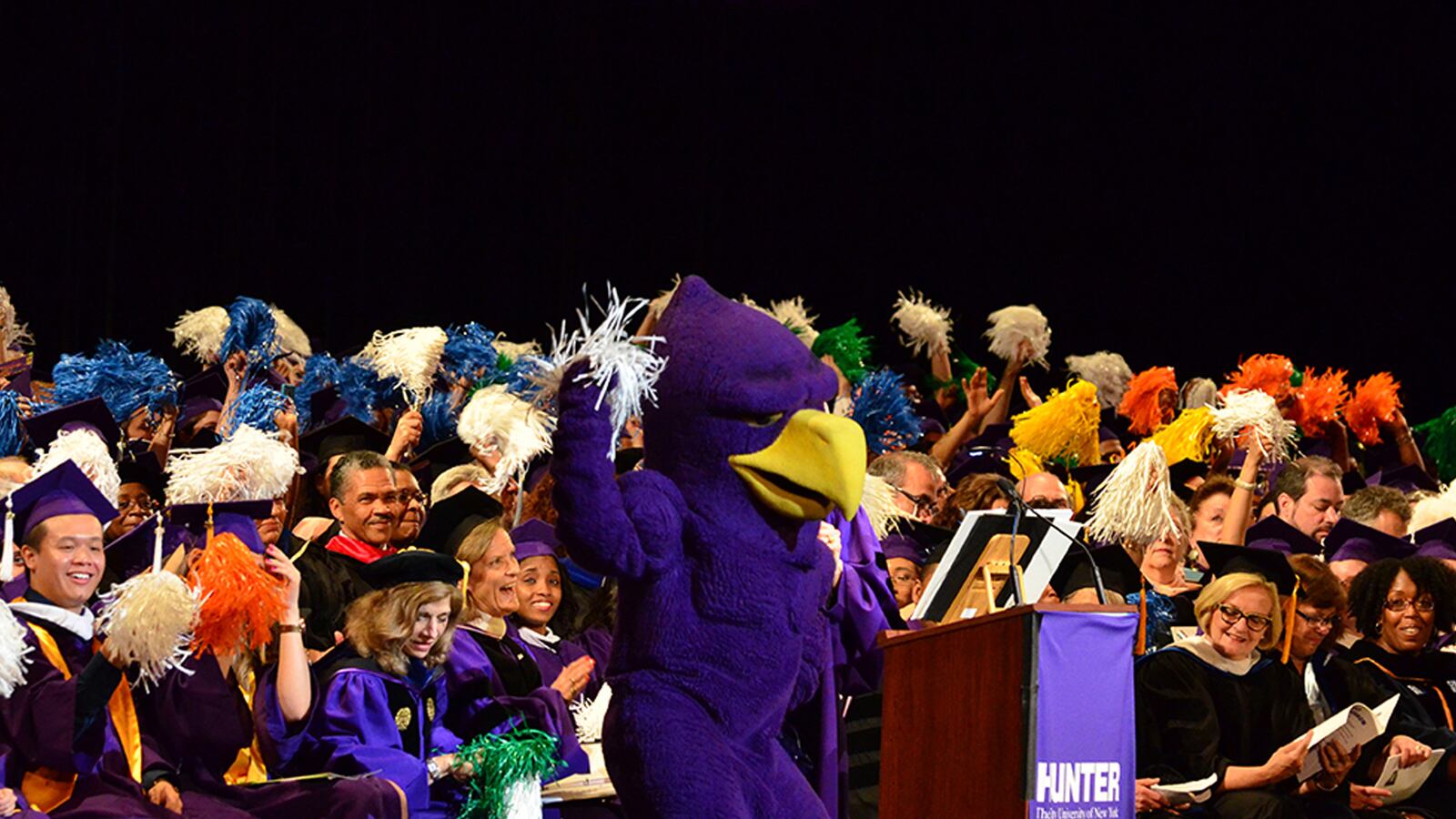As a kid growing up in Queens, I never imagined I would be on stage at Radio City Music Hall, home of the Rockettes and now the National Football League draft. But there I was, seated for three hours next to jazz great Wynton Marsalis, waiting my turn to speak and accept an honorary degree from Hunter College. I had attended Hunter at night in the 1960s, but life intervened, and I didn’t get a degree.

Now Hunter wanted to confer an honorary doctorate on me, and I needed to find the words to properly convey how honored I felt. Looking out at the sea of students in cap and gown, I saw the 21st-century version of myself, sons and daughters of immigrants and newcomers to America from every corner of the world. Of the nine valedictorians, two were from Uzbekistan.
The countries of origin change, but the immigrant experience is what defines Hunter. My parents came from the tiny island of Föhr in the North Sea off the coast of Germany and Denmark. They had a delicatessen first in Brooklyn, then in Queens, and they entered the country legally through Ellis Island.
When I stepped to the podium to speak, I thought I had my emotions under control. But telling my family’s story brought tears to my eyes, and it took me several seconds before I could continue. When I attended Hunter, I was Eleanor Roeloffs fulfilling the language and math courses required at the time. I had no idea I was setting off on a career path that I hadn't even dared to dream might be possible.
The young woman who draped the doctoral hood around my shoulders was born in Ecuador and brought to America by her parents when she was six. Working full time and raising a son who is now 3, Andrea León, a creative writing major, was graduating with a 3.4 GPA seven years after she started at Hunter. Because she was in the country illegally, she couldn’t get any scholarship or work study support. President Obama’s 2012 executive order gave “dreamers” like León legal status so she could apply for jobs other than the off-the-book restaurant work she had been limited to doing.
There are some 500 undocumented students at Hunter, and President Jennifer Raab told me she could always tell who they were because they took all the snacks when they came to her office. They were hungry. New York is expensive under the best of circumstances, and students living in the shadows and fearful of deportation carry an additional burden. I wish Speaker Boehner and the Republican leadership could have been on stage with me to hear the stories of students excelling despite great odds. They had overcome everything from religious persecution to blindness to crushing family responsibilities. Super dedicated and hard working, they represent the best of America in a city where the Statue of Liberty beckons.
Hunter’s jazz musicians flowed down the aisles of the hall with a rousing rendition of “When the Saints Go Marching In,” a fitting tribute to the New Orleans-born Marsalis. He commended the students’ stories that told of a second chance, and invoked the legacies of Duke Ellington, Thelonious Monk, Miles Davis and Benny Goodman, who he said set up all the members of his band in apartments in Jackson Heights, where I grew up. It was the era of segregation, and Goodman’s jazz band was integrated. Listening to Marsalis and watching the rapport he had with the students, I was just grateful that I didn’t immediately follow him at the podium. That task fell to Missouri Sen. Claire McCaskill, whose daughter was graduating with honors from Hunter. Backstage earlier, McCaskill had given me tips on how to bobby pin the mortarboard cap to my head.
When my turn came, I got a laugh when I said philosophy would have been my major had I stayed in school, and I didn’t know how many options that would have given me, but I would have had a grand time considering them all. That offered a natural transition to the world of journalism that I entered, where you get to ponder politics and the human condition. Paying homage to the iconic Rockettes, I offered to do a high kick or maybe demonstrate the blocking and tackling techniques I use in political debate. When I sat down, Marsalis offered praise, saying my words were “moving … funny ... and to the point.” I must have looked skeptical, because he touched my arm and said, “I mean it.”
I mean it too when I say how proud I am to be associated with Hunter, a public college that has high academic standards and that values social justice, where tuition is $6,000 a year compared to $42,000 for New York University, a comparable private institution. I don’t remember what I paid all those years ago, all I know is it didn’t break the bank, and it was worth every penny and more.






